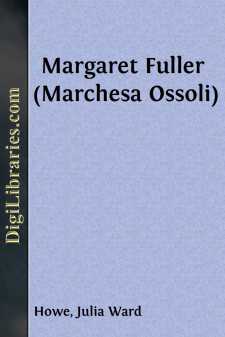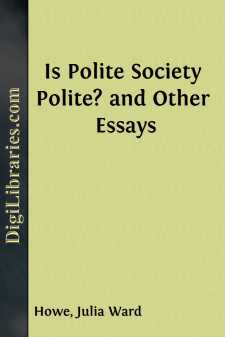Categories
- Antiques & Collectibles 13
- Architecture 36
- Art 48
- Bibles 22
- Biography & Autobiography 813
- Body, Mind & Spirit 142
- Business & Economics 28
- Children's Books 14
- Children's Fiction 11
- Computers 4
- Cooking 94
- Crafts & Hobbies 4
- Drama 346
- Education 46
- Family & Relationships 57
- Fiction 11829
- Games 19
- Gardening 17
- Health & Fitness 34
- History 1377
- House & Home 1
- Humor 147
- Juvenile Fiction 1873
- Juvenile Nonfiction 202
- Language Arts & Disciplines 88
- Law 16
- Literary Collections 686
- Literary Criticism 179
- Mathematics 13
- Medical 41
- Music 40
- Nature 179
- Non-Classifiable 1768
- Performing Arts 7
- Periodicals 1453
- Philosophy 64
- Photography 2
- Poetry 896
- Political Science 203
- Psychology 42
- Reference 154
- Religion 513
- Science 126
- Self-Help 84
- Social Science 81
- Sports & Recreation 34
- Study Aids 3
- Technology & Engineering 59
- Transportation 23
- Travel 463
- True Crime 29
Margaret Fuller (Marchesa Ossoli)
by: Julia Ward Howe
Description:
Excerpt
CHAPTER I.
CHILDHOOD AND EARLY YOUTH.—SCHOOL DAYS.
The subject of the following sketch, Sarah Margaret Fuller, has already been most fortunate in her biographers. Cut off herself in the prime of life, she left behind her devoted friends who were still in their full vigor of thought and sentiment. Three of these, James Freeman Clarke, Ralph Waldo Emerson, and William Henry Channing, set their hand, some thirty or more years ago, to the happy task of preserving for posterity their strong personal impressions of her character and influence. With these precious reminiscences were interwoven such extracts from her correspondence and diary as were deemed fittest to supply the outline of her own life and experience.
What, it may be asked, can such biographers have left for others to do? To surpass their work is not to be thought of. But, in the turning{2} and perseverance of this planet, present soon becomes past, and that which has been best said asks to be said again. This biography, so rich in its suggestions and so valuable in its details, is already set in a past light by the progress of men and of things. Its theme has lost none of its interest. Nay, it is through the growing interest felt in Margaret and her work that a demand seems to have arisen for a later word about her, which cannot hope to be better or wiser than the words already made public, but which may borrow from them the inspiration for a new study and presentment.
According to the authorities already established, Sarah Margaret Fuller, the child of Timothy Fuller and Margaret Crane, was born at Cambridgeport, near Boston, on the 23d of May, 1810. She has herself given some account of her early life in an autobiographical sketch which forms the prelude to the work already published. Her father, she says, "was a lawyer and a politician," the son of a country clergyman, Harvard-bred both as to his college and his professional studies. She remembers him chiefly as absorbed in the business and interest of his profession, intent upon compassing the support of his family, and achieving such distinction as might prove compatible with that object. Her mother she describes as "one of{3} those fair, flower-like natures, which sometimes spring up even beside the most dusty highways of life,—bound by one law with the blue sky, the dew, and the frolic birds." And in the arduous labor of her father's life, his love for this sweet mother "was the green spot on which he stood apart from the commonplaces of a mere bread-winning, bread-bestowing existence."
The case between Margaret and her father is the first to be disposed of in our consideration of her life and character. In the document just quoted from she does not paint him en beau. Here and elsewhere she seems to have been inclined to charge upon him the excessive study which exaggerated her natural precocity of temperament, and the Puritan austerity which brought her ungratified imagination into early conflict with the circumstances and surroundings of her start in life. In a brief preface to the memoir already published, a surviving brother of Margaret characterizes this view of the father as inadequate and unjust.
Margaret herself called her sketch an autobiographical romance, and evidently wrote it at a period of her life in which her personal experience had thrown little light upon the difficulties which parents encounter in the training of their children, and especially in that of their eldest-born.{4}
From the sketch itself we gather that the Fuller household, although not corresponding to the dreams of its wonder-child, had yet in it elements which were most precious for her right growth and development. The family itself was descended from a stock deeply thoughtful and religious. With the impulses of such kindred came to Margaret the strict and thrifty order of primitive New England life, the absence of frivolity, the distaste for all that is paltry and superficial....




